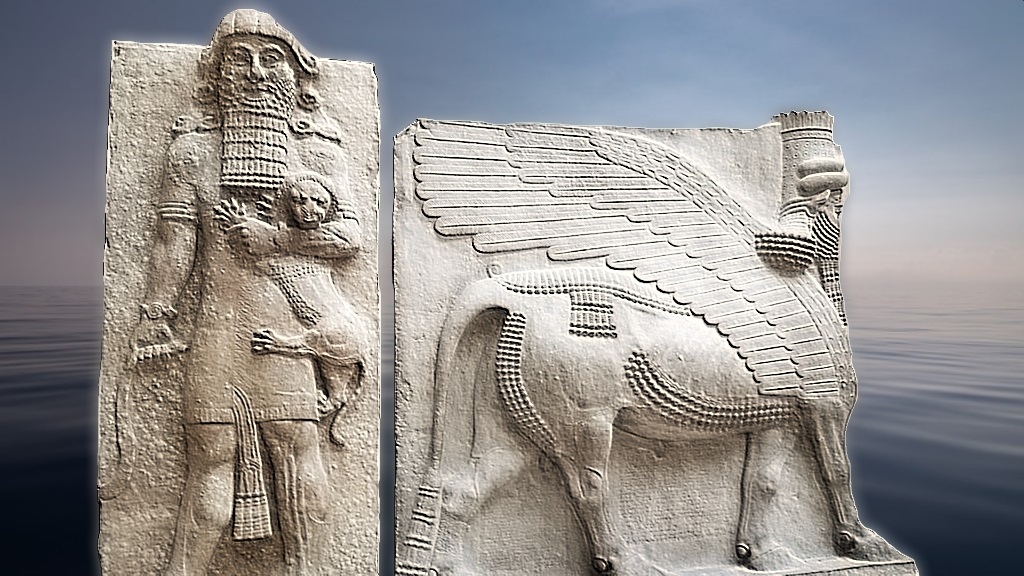History: Human, Time, And Gilgamesh

Five thousand years somewhere in ancient mesopotamia between the Tigris and Euphrates rivers there is a place called Uruk or what we know today as Iraq. Now this place is considered as the beginning of civilization in the world.
Why is Uruk called the first city of world civilization when there are many old places that have been inhabited by humans besides Uruk?
The answer is because it is in this place that humans first knew and divided time into minutes, hours, days, months, and years. All of these time divisions are based on observing the moon and stars in the sky. (In short, the time sharing system we know today is Uruk's cultural heritage).
It is also in this place that humans for the first time won against time where in this place humans for the first time also found the name of writing.
Maybe someone asks what is the importance of the invention of writing? writing itself can make human thought and civilization can penetrate a very long time and be read by tens of generations afterward. and it is man's victory against time, because our bodies are not immortal but are limited by age, but our writings and thoughts can still be read long after we die.
One of the oldest writings known to mankind comes from this Uruk, is the poem of an Akkadian princess named Enheduanna which is entitled a woman with a big heart, the writing of this Enheduanna poem is much older than all the scriptures we know in human civilization.
But the most famous of Uruk is the appearance of the first superhero story in human history named Gilgamesh. For many historians, Gilgamesh is considered a figure who inspired the many religious mythologies that follow.
Even in the story of Gilgamesh's quest to become immortal, he will later meet the name Utnapishtim which tells how the world in ancient times was drowned by a giant flood by the gods and Utnapishtim also tells how he survived because he was helped by the god Enki who ordered him to make a giant ark and enter his family. and every pair of living things on earth into his boat because soon other gods will drown the earth.
And finally in that story the Earth was drowned by the gods of ancient Mesopotamia because the gods were fed up with humans and in the end only Utnapishtim with his family and the animals paired on his boat survived.
In addition to the story of the great flood epic Gilgamesh itself contains many other mythologies that have been adapted by various religions afterwards such as the giant wall of Uruk which is not penetrated by anything, as well as Gilgamesh's battle with various monsters and other mythological creatures. To the end of the world (at that time the world was still considered straight and had an end).
That is why historians agree that the culture of ancient Mesopotamia and Sumeria, especially Uruk, was a source of inspiration that influenced the cultures and beliefs after it even today.
But even though Gilgamesh's story did not get the immortality he wanted, what is clear is that the story of ancient Mesopotamia and Sumeria has been preserved in writings that are nearly 4,000 years old and we can still trace it to this day, even the time system they created in the past is still used. to this day. So humans do manage to conquer time by writing.
Source :
https://en.wikipedia.org/wiki/Uruk
https://en.wikipedia.org/wiki/Uruk_period
http://classicalarthistory.weebly.com/library/enheduanna-poems
http://www.ancient.eu/Enheduanna/
https://en.wikipedia.org/wiki/Mesopotamia
https://en.wikipedia.org/wiki/Enheduanna
https://en.wikipedia.org/wiki/Epic_of_Gilgamesh
https://en.wikipedia.org/wiki/Gilgamesh
https://en.wikipedia.org/wiki/Utnapishtim
https://en.wikipedia.org/wiki/Enkihttps://en.wikipedia.org/wiki/Gilgamesh_flood_myth
http://channel.nationalgeographic.com/cosmos-a-spacetime-odyssey/
The Bible denotes a ten book colophon phrase segregated Genesis which predates Gilgamesh. This is a good read: http://truthseekertimes.ca/ts/truescience0002.html